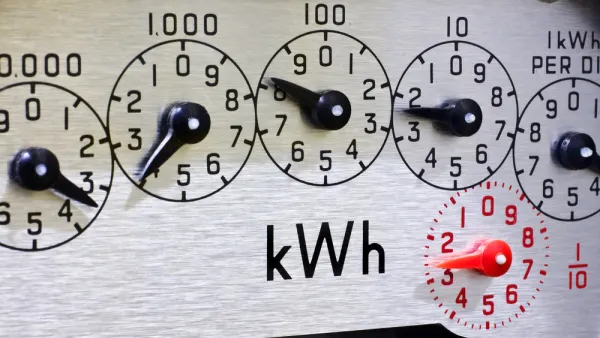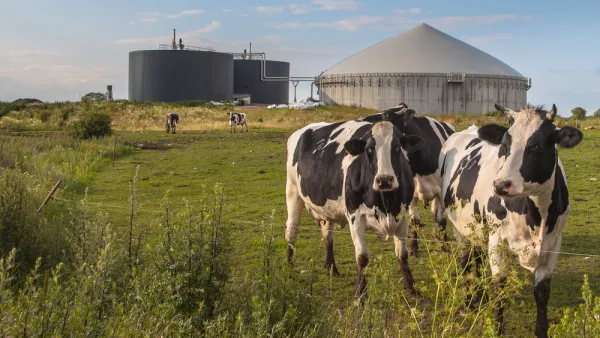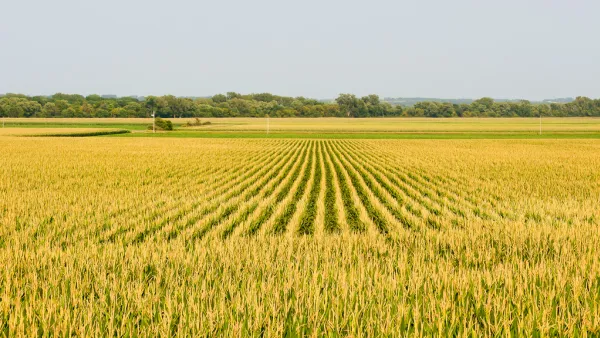A pair of articles in The New York Times look at two different kinds of waste generated from North Dakota's booming oil industry: natural gas from oil wells is burned due to the absence of pipelines, and the disposal of waste in landfills.
Clifford Krauss writes about the controversial practice of burning, or flaring, natural gas produced at oil wells in the Bakken Formation. The practice is being litigated not by environmental organizations concerned about the huge amounts of carbon dioxide generated, "producing emissions equivalent to more than two medium-size coal-fired power plants", but by landowners "seeking millions of dollars in lost royalties from some of the nation’s largest oil companies".
Roughly 1,500 fires burn above western North Dakota because of the deliberate burning of natural gas by companies rushing to drill for oil without having sufficient pipelines to transport their production. With cheap gas bubbling to the top with expensive oil, the companies do not have an economic incentive to build the necessary gas pipelines, so they flare the excess gas instead.
Shifting from the air to the ground, John Eligon writes about a lawsuit filed by the Sorenson family in Ross against a second cousin who has leased his neighboring land "to install a landfill to dispose of solid drilling waste on a golden 160-acre wheat field."
“I’m concerned not if it leaks, it’s when it’s going to leak over there,” Ms. Sorenson, 42, said.
Both cases illustrate how fast the oil output has been growing in what is now the nation's second largest oil producer (after Texas). The lack of pipelines for natural gas is matched by the lack of pipelines for oil, forcing producers to resort to moving crude-by-rail, a practice that has its own set of problems, illustrated by the Lac-Megantic, Quebec conflagration in July and Saturday's explosion in Gainford, Alberta.
However, the landfill disposal of oil waste differs from from flaring in that landfills are seen as an environmentally preferred alternative to disposing the oil waste on-site.
Industry experts argue that landfills are built with better technology and safeguards to prevent environmental hazards than dumps at drilling sites. And it is safer to have a few central dumps that are monitored than a waste pit on each of the thousands of drilling sites throughout the Bakken shale field, said John McCain, the executive vice president and principal engineer at Carlson McCain, the engineering company designing the landfill proposed in Ross.
For the wheat field to be converted to a landfill, it will need to be rezoned from agricultural to industrial land by the Mountrail County Commission. Regardless of the safety of the landfill, concerns about it are part of the wider concern of the effects of the oil industry on North Dakota's heritage - it's rich farm and ranch land.
“This country has always been ag country as far as raising crops and livestock,” said Dave Hynek, one of five county commissioners who farms for a living. “And once this mineral is depleted — and it will be some day — it will go back to being ag land, and I don’t believe it will ever be as productive as it originally was.”
FULL STORY: Oil Companies Are Sued for Waste of Natural Gas

Analysis: Cybertruck Fatality Rate Far Exceeds That of Ford Pinto
The Tesla Cybertruck was recalled seven times last year.

National Parks Layoffs Will Cause Communities to Lose Billions
Thousands of essential park workers were laid off this week, just before the busy spring break season.

Retro-silient?: America’s First “Eco-burb,” The Woodlands Turns 50
A master-planned community north of Houston offers lessons on green infrastructure and resilient design, but falls short of its founder’s lofty affordability and walkability goals.

Test News Post 1
This is a summary

Analysis: Cybertruck Fatality Rate Far Exceeds That of Ford Pinto
The Tesla Cybertruck was recalled seven times last year.

Test News Headline 46
Test for the image on the front page.
Urban Design for Planners 1: Software Tools
This six-course series explores essential urban design concepts using open source software and equips planners with the tools they need to participate fully in the urban design process.
Planning for Universal Design
Learn the tools for implementing Universal Design in planning regulations.
EMC Planning Group, Inc.
Planetizen
Planetizen
Mpact (formerly Rail~Volution)
Great Falls Development Authority, Inc.
HUDs Office of Policy Development and Research
NYU Wagner Graduate School of Public Service




























